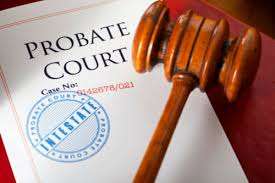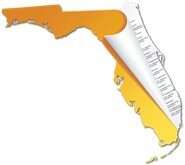Summary Administration in Florida: Streamlining Probate with Expert Nonlawyer Document Preparation Services
Summary Administration: Navigating the Simplified Probate Process in Florida
Dealing with an estate can often seem like a maze filled with legal jargon and complex procedures. Fortunately, for those in Florida, there’s a more straightforward and faster path available called Summary Administration.

This expedited form of probate is not only quicker but also less complicated than traditional probate processes, making it an appealing option under the right circumstances. In this guide, we’ll delve into Florida Summary Administration, exploring its many advantages, eligibility criteria, and how utilizing nonlawyer document preparation services like Florida Document Specialists can streamline the process for you. We’ll also walk you through the key steps involved, from depositing the will to filing your petition for Summary Administration.
Unpacking the Benefits of Summary Administration
Summary Administration offers a plethora of advantages that make it highly appealing for those looking to navigate estate matters with relative ease.
Quick Turnaround
One of the most notable benefits of opting for Summary Administration is its swiftness. Traditional probate can be a protracted affair, stretching from several months to even years, particularly for complex estates. In stark contrast, Summary Administration usually wraps up in just a few weeks to a couple of months. This speed allows for a prompt distribution of the estate’s assets, helping beneficiaries gain quicker access to their inheritance.
Cost-Effectiveness
The second significant advantage is the financial savings. Summary Administration is generally more affordable than traditional probate, primarily because of its simplified procedures and faster timelines. These factors lead to fewer associated expenses, alleviating the financial stress during an already emotionally challenging period.
Criteria for Eligibility in Summary Administration
Summary Administration is not a one-size-fits-all solution; there are specific eligibility criteria that must be met to take advantage of this streamlined process.
The individual who has passed away, referred to as the decedent, must have been deceased for at least two years. Alternatively, the total value of the estate subject to probate must be under $75,000, excluding the decedent’s protected homestead property.
The Integral Role of Nonlawyer Document Preparation Services
The involvement of specialized services like Florida Document Specialists can be a game-changer when navigating the probate waters. While these professionals do not provide legal counsel, they excel in preparing all the crucial legal documents necessary for a streamlined process like Summary Administration.
Accuracy in Document Preparation
Ensuring your legal documents are error-free is a cornerstone for a seamless probate journey. Specialized document preparation services take this responsibility seriously, leveraging their expertise and experience to complete forms with precision. This meticulous attention to detail minimizes the risk of errors that could set you back in terms of both time and money.
Affordable Services
Legal services can be costly, and not everyone can afford an attorney’s fees. Nonlawyer document preparation services stand as a budget-friendly alternative, providing essential assistance at a fraction of the cost of traditional legal consultation.
Convenience Factor
Many of these services offer digital support, enabling you to access the required assistance right from the comfort of your home.
A Note on Formal Administration
It’s essential to mention that nonlawyer document preparation services like Florida Document Specialists can assist primarily with Summary Administration. If your estate requires a Formal Administration, consulting with an attorney becomes a necessity.
A Step-by-Step Guide to the Summary Administration Process
Depositing the Will: If a will exists, it should be deposited with the clerk of the circuit court in the relevant county, generally within 10 days of becoming aware of the decedent’s passing.
Filing a Petition: The next step involves filing a Petition for Summary Administration. This petition outlines key details, such as information about the decedent, a list of assets, their estimated value, and the beneficiaries’ names and addresses.
Court Review: The court will then scrutinize the petition, and if it deems the estate eligible for Summary Administration, it will issue an order to release the assets to the beneficiaries.
Distribution of Assets: Once the court order is in place, the assets can be distributed accordingly.
It’s crucial to note that Summary Administration does not appoint a personal representative for the estate. Thus, it may not be the best fit if there are pending disputes or debts.
Wrapping Up: Making Probate Simpler and More Efficient
To wrap it up, Summary Administration is a fast, efficient, and often less expensive method for navigating the complex world of probate in Florida. When conditions are suitable, it presents a compelling alternative to traditional probate procedures. The added advantage of employing nonlawyer document preparation services streamlines the process even more, offering a financial advantage and simplifying the paperwork. Summary Administration emerges as a straightforward choice in a complex arena, providing a valuable lifeline during challenging times.

